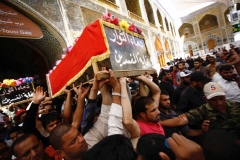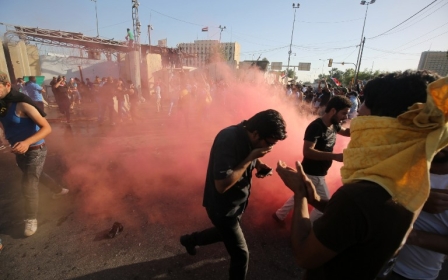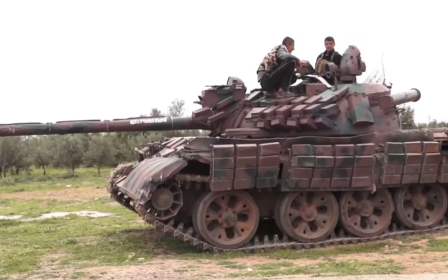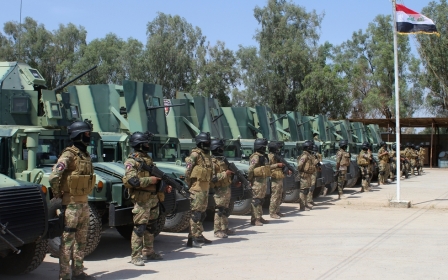Iraq launches offensive to retake Fallujah from IS
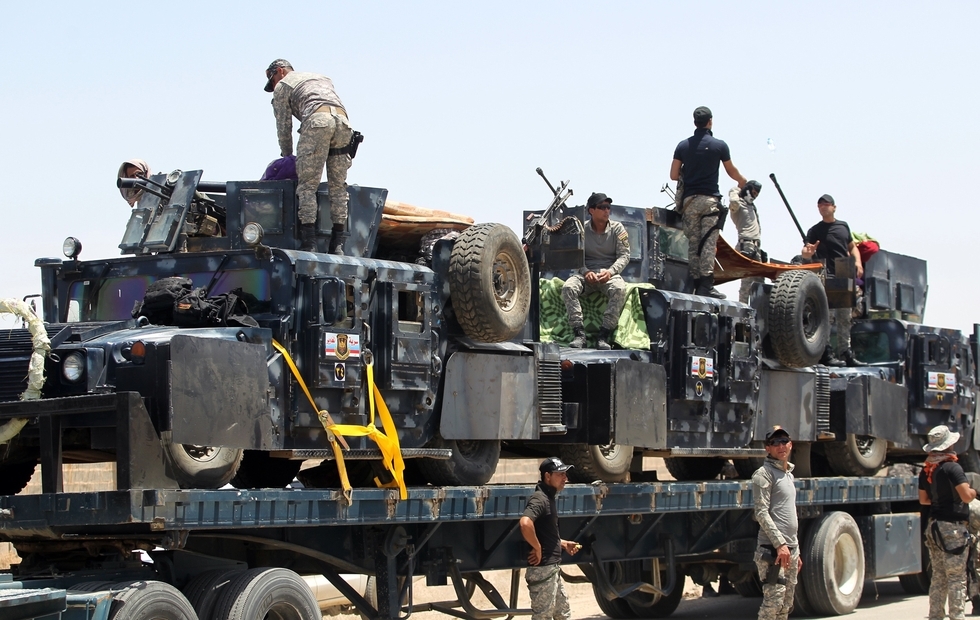
Iraqi security forces backed by paramilitary units and an international US-led military coalition began an offensive early on Sunday to retake the Islamic State (IS) group-held city of Fallujah, Iraqi military sources and security officials told Middle East Eye.
Fallujah, a Sunni-dominated city on the banks of the Euphrates River 65 kilometres west of Baghdad, was seized by the militants two years ago. Iraqi forces have surrounded the city for several months while the campaign to liberate it has been delayed repeatedly by disagreements between the Iraqi side and the US-led coalition over participating groups and timing of the offensive.
More than 30,000 Iraqi troops headed by counter-terrorism units are poised to invade the city.
Iraq’s government has dubbed the operation the “Break-Up of Terrorism”. Iraqi regular troops and anti-IS Sunni paramilitary factions will make their way into the city, while other units, including Shia paramilitary factions, will provide back-up and secure the region around Fallujah, military officers told MEE.
The first stage of the offensive began about 2am local time and included pounding the city with artillery and air strikes to drain the resources of IS militants.
"Preparatory operations have begun. Our forces are ready and waiting for zero hour to raid the city," Sabah Nuaman, a spokesman for Iraq’s counter-terrorism units, told MEE.
"Fallujah is on the flank of Baghdad and was the base from which many terrorism operations were launched. It must be liberated to secure Baghdad and ensure the stability of the surrounding areas," Nuaman said.
Liberating cities, towns
In recent months, Iraqi security forces have been steadily liberating the cities and towns of Anbar province, most of which had been under the control of IS since the summer of 2014. The border Iraqi city of Rutba, which occupies a strategic location on the Amman-Baghdad road, was retaken on Wednesday.
Fallujah is the last big city held by IS in Anbar, and to dislodge the militants would mean the end of the group in western Iraq. By liberating Fallujah and several small towns, Iraqi troops will be free to advance to Mosul, officers said.
"We are looking to move on and retake Mosul, and we can’t do that while daesh (a local term for IS) still controls a sector near Baghdad like Fallujah," Nuaman said. "We’ve regained control over the rest of Anbar province. Fallujah is the last.”
On Sunday morning, Iraqi planes dropped leaflets over Fallujah asking people to be ready to leave and instructing them to avoid IS gatherings or command posts. The leaflets also advised residents who remained in the city to raise white flags over their shelters and to isolate themselves from the militants.
"The liberation of Falluja is an Iraqi military operation, participated in by all Iraqi troops … these troops have no option but victory and the liberation of Falluja," one leaflet read.
Fallujah has at various times harboured most Iraqi Sunni militant groups, and has been used by the militants as a symbol to recruit fighters from around the world and to raise funds, security officials and analysts said. It is seen by most Iraqis as the main hotbed of IS in western Iraq.
"Falluja is the head of snake, and when the head is removed, the snake will die," Wahab al-Taie, an independent Iraqi security analyst, told MEE. "Finishing daesh in Falluja will break it in Iraq. It will be just a matter of time."
Many international and local humanitarian organisations, including the UN mission in Iraq, as well as local officials, have been warning of a "serious shortage of food and health care" inside Fallujah. Little verified information about the situation inside the city has been available, but tens of thousands people are trapped there, under siege, and there is sure to be a shortage of food and medical care, federal and local officials agreed.
Internal conflict
The Fallujah operation was scheduled to begin several days ago, but riots broke out in Baghdad as protesters stormed the green zone on Friday, delaying the operation. Some military units en route to Fallujah were ordered back to Baghdad as further rioting by followers of powerful Shia cleric Moqtada al-Sadr was anticipated, Shia paramilitary faction commanders and security sources in Baghdad told MEE.
The green zone has been the most secure section of Baghdad since 2003, when it was fortified after the US-led invasion. Still, hundreds of demonstrators, mostly Sadr’s followers, stormed into the zone for a second time, entering the offices of cabinet members.
Iraqi security forces opened fire and used rubber bullets, tear gas and water canon to force the demonstrators to withdraw. At least four people died outright or from their wounds and dozens were hurt. Police officers were among those killed, medics and security sources said.
Hours later, fighters from Sadr's armed wing, Saraya al-Salam (Peace Battalions), mobilised and showed up in Baghdad. Riots broke out in the southern oil hub of Basra and the nearby city of Nassiriya when protesters tried to storm the buildings of the local governments. No casualties were reported.
"Some people are seeking to drag us into a Shia-on-Shia side battle. This is forbidden and all brothers have to be careful to avoid another confrontation," Hadi al-Amiri, a prominent Shia leader and commander of the Badr Shia militia, said in a statement on Saturday.
"Our real fight is with the terrorists, so be prepared for the Fallujah battle and do not be distracted by anything else," Amiri said.
New MEE newsletter: Jerusalem Dispatch
Sign up to get the latest insights and analysis on Israel-Palestine, alongside Turkey Unpacked and other MEE newsletters
Middle East Eye delivers independent and unrivalled coverage and analysis of the Middle East, North Africa and beyond. To learn more about republishing this content and the associated fees, please fill out this form. More about MEE can be found here.


